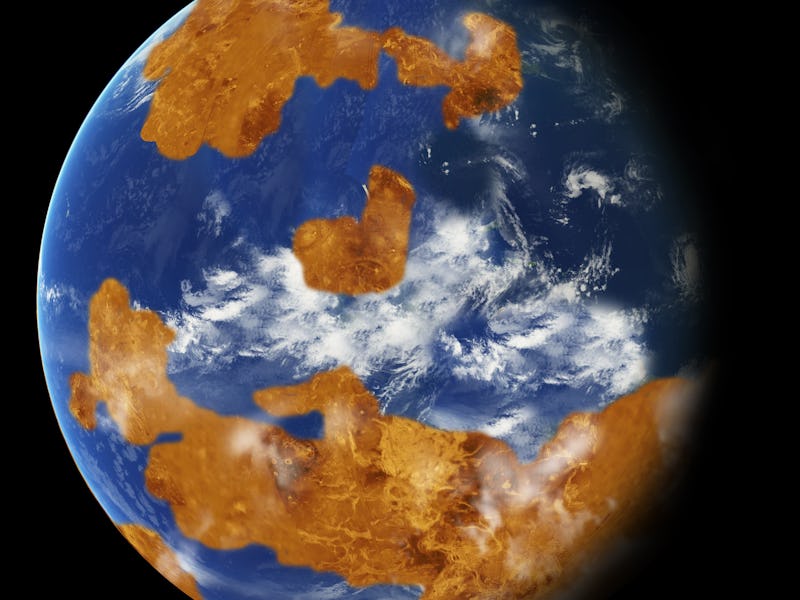It’s possible that Venus held a warm, shallow ocean and temperate climate for about two billion years, long enough for life to have evolved, according to NASA researchers.
A new study, published Thursday in Geophysical Research Letters, used computer models to estimate the planet’s climate over history. The findings suggest Venus might have been the first place in the solar system to develop conditions suitable to life.
Of course, Venus is a totally different world today. Surface temperatures reach 890 degrees Fahrenheit, the climate is bone dry, and carbon dioxide concentrations in the atmosphere are 90 times thicker than they are on Earth. Blame runaway climate change — over time the intense solar heat stole away all of the planet’s water, leaving an atmosphere that got more and more dense, trapping more and more heat on the surface.
Previous research hypothesized the planet’s long rotational period — a day on Venus is equivalent to 117 days on Earth — would make habitable conditions impossible. But the new paper found that perhaps the oceans could have handled the intense sunlight. Increased radiation from the sun would cause water to evaporate and clouds to form, which, in turn, would moderate the heat. Ancient Venus’s climate may actually have been a few degrees cooler than today’s Earth.
In all, it’s possible that Venus had a liquid water ocean from 2.9 billion years ago up until 750 million years ago, the researchers write. Still, a moderate climate does not guarantee the propagation of life. Here on Earth, the emergence and then development of life depended on a series of wildly improbable accidents that are still not that well understood. Did the same twists of fate occur elsewhere at some point, somewhere? The truth, as they say, is out there.
